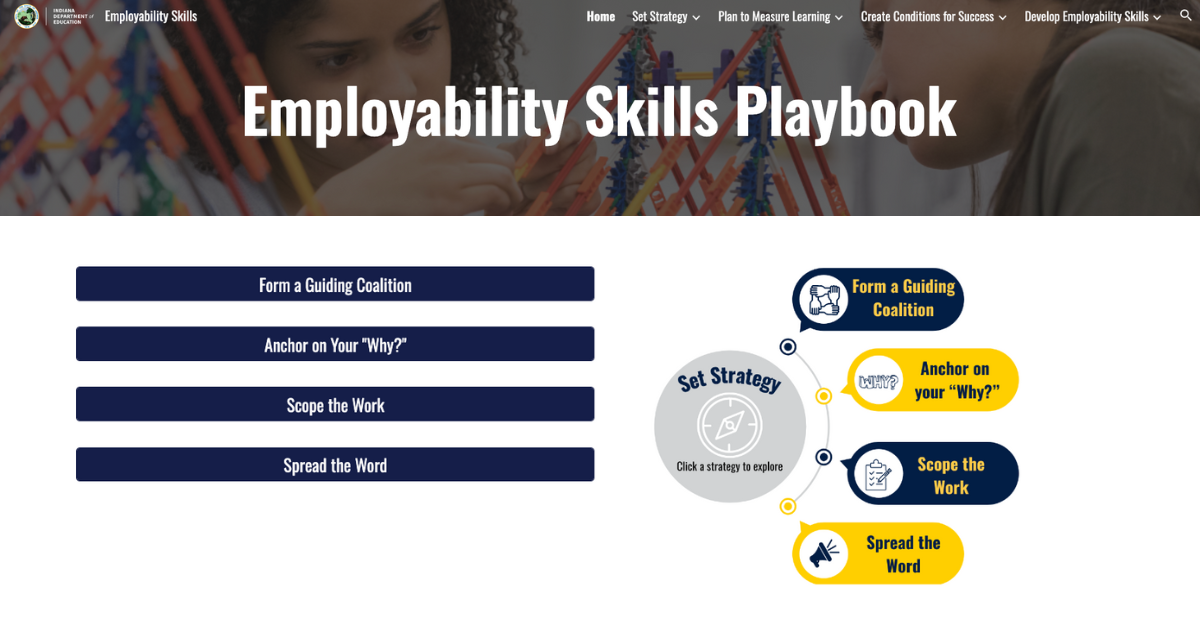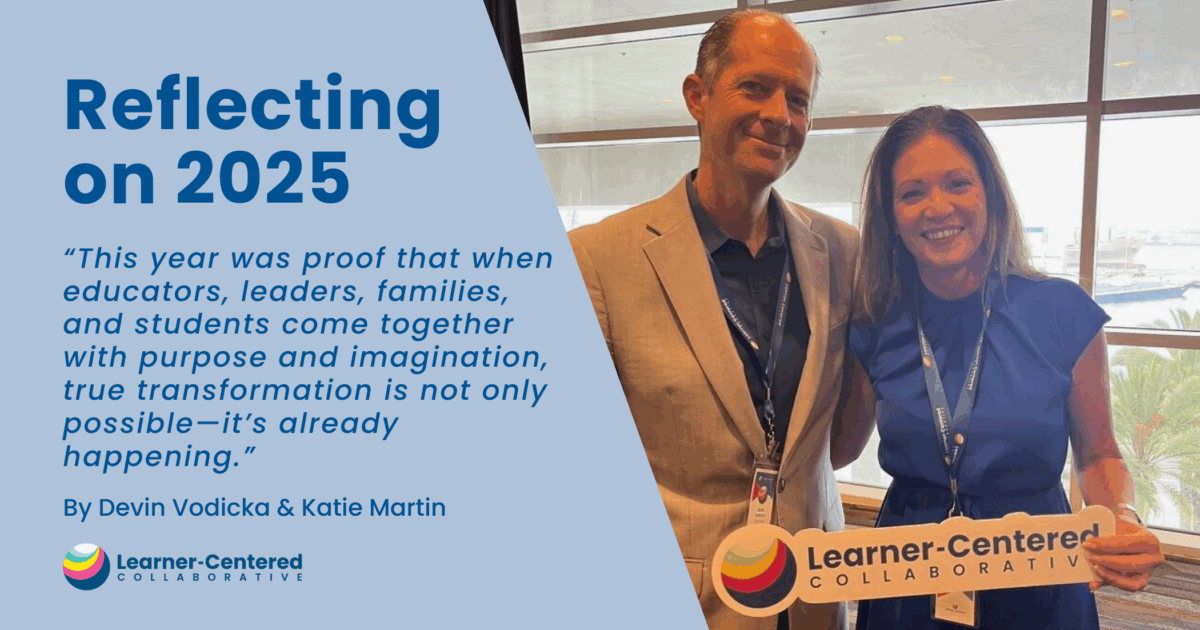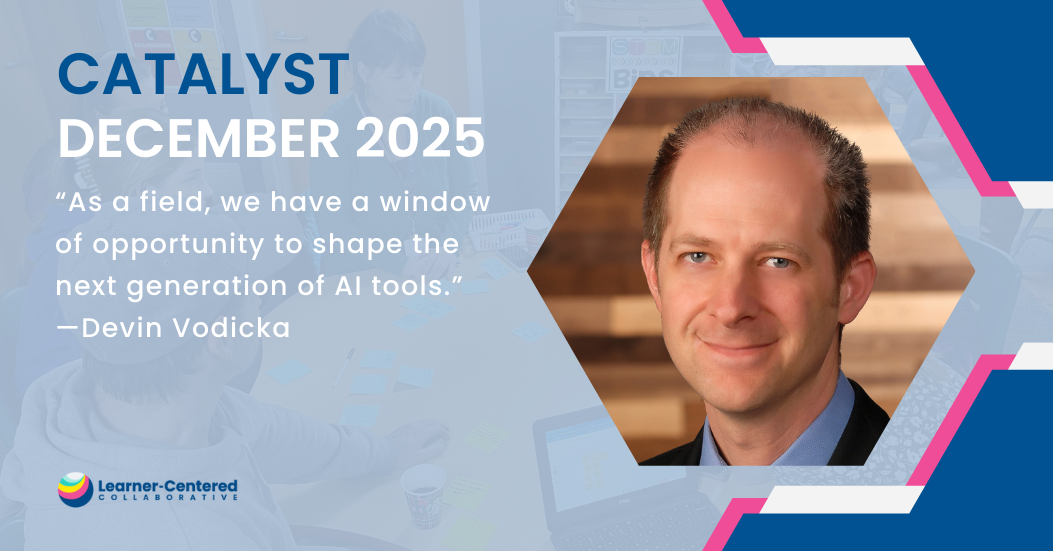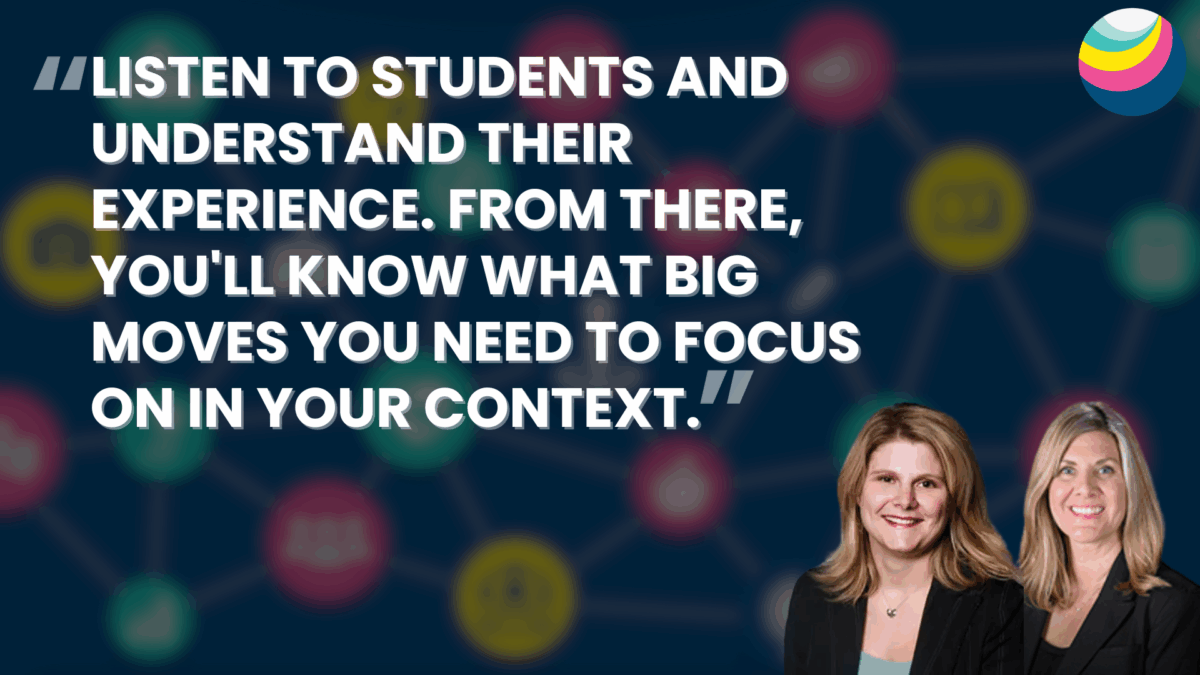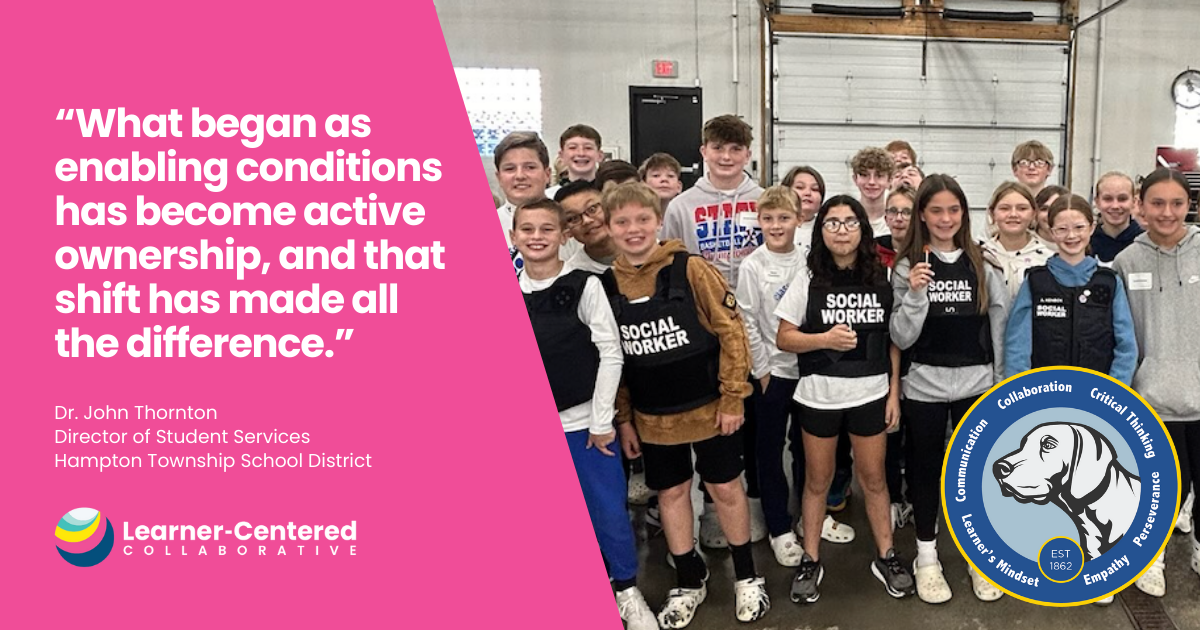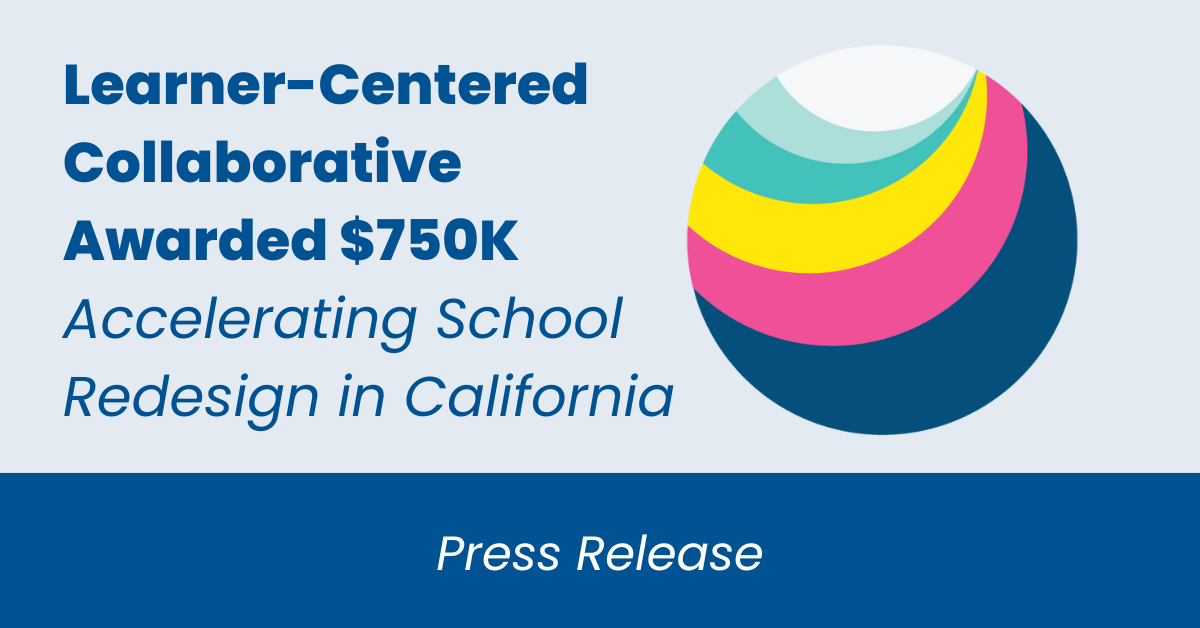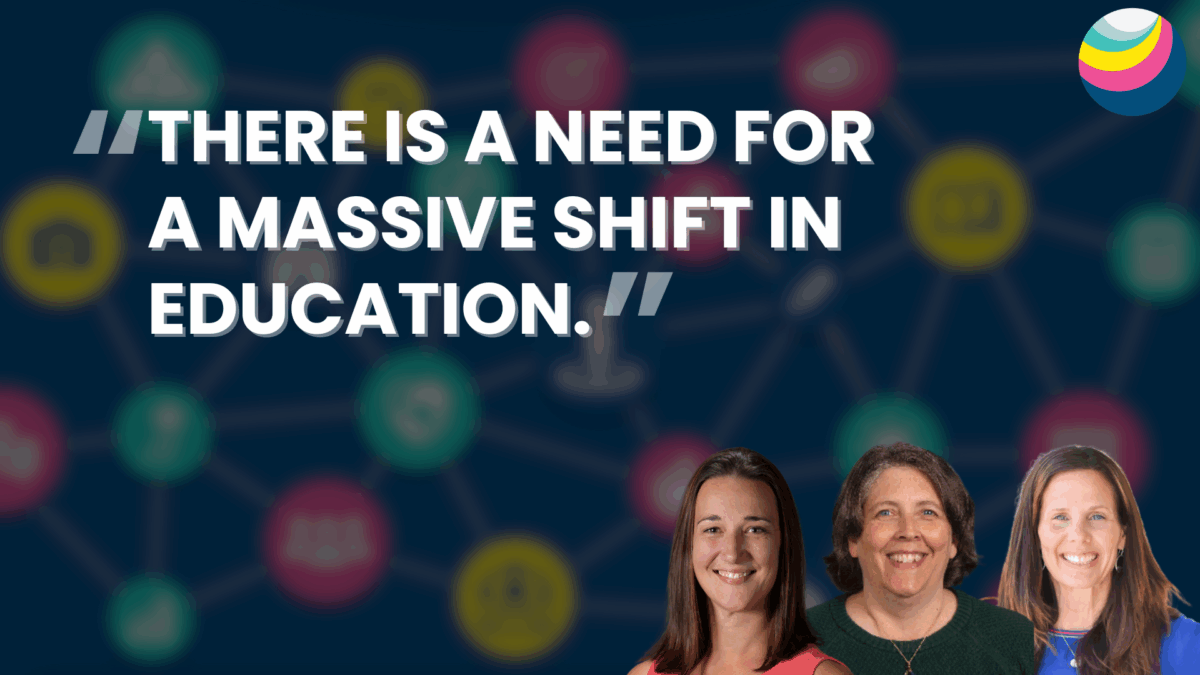Elevating Early Innovators to Spark and Sustain Statewide Change
A Collaboration with the Indiana Department of Education and Employability Skills
Indiana’s Employability Skills Initiative represents a concerted effort for students to build the practical competencies essential for thriving in today’s workforce. Through this work, Indiana’s Department of Education (INDoE) integrates vital skills such as collaboration, communication, and work ethic into the state’s educational fabric. As we explore the transformative journey fueled by strategic partnerships with America Succeeds and Learner-Centered Collaborative, a key strategy to leading change was elevation of early innovator bright spots. We spotlight how this approach became a catalyst for statewide change, amplifying the impact of the Employability Skills Initiative.
Leading change in a school or district can be challenging work, and across an entire state it can seem almost impossible. The INDoE team understood the value of “start small and scale” to allow for an iterative process among early innovators testing various approaches that would ultimately be shared more widely. They also recognized the power of identifying, elevating, and sharing best practices to accelerate innovation among all grantees and beyond. With the support of Learner-Centered Collaborative (LCC), the INDoE team identified early innovators, collected their stories and artifacts, and curated their approaches in a Playbook that makes the initiative actionable for any school in Indiana and beyond.
Step 1: Identifying Early Innovators
Grants were awarded to 58 schools and school corporations across Indiana to integrate three core Employability Skills: collaboration, communication, and work ethic. The scope and timeline of each project varied greatly. In order to keep a pulse check on who was where in the process, LCC worked with INDoE to develop a heatmap. Grant winners completed surveys at the end of recurring workshops throughout the process, so four intentionally crafted questions were added to the end of the survey. Grantee responses to these four questions automatically triggered color coding in the results spreadsheet, automatically creating a visual heatmap of successes and challenges. The Department was able to spot early innovators by looking for green (and conversely, offer support when they saw red).
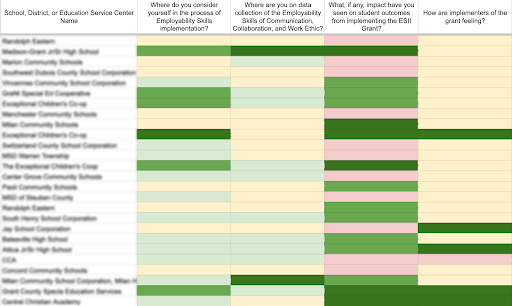
Step 2: Gather and Synthesize Early Innovator Stories
Knowing who was making progress in the work, of course, sparked curiosity about how. Based on the grant applications of the identified early innovators, the Department understood the desired outcome, but the process for supporting that change was not yet clear. The Department wanted to know how schools were approaching this work, with an interest in documenting and sharing the successes. LCC tapped into several channels in existing work streams to listen and collect stories about how each early innovator was approaching the work. This ranged from school visits, to 1-1 interviews and even attending virtual and in-person sessions designed to support grant winners. During the earliest connections with early innovators, LCC took an empathy interview approach, asking open-ended questions to better understand the details of each school’s approach. After just a few conversations, themes began to emerge, which were used to create an initial sketch of an Indiana Employability Skills change process. With each early innovator interaction, this draft was refined and sharpened to most accurately capture the phases and specific strategies attempted across the state.

Step 3: Share Early Innovator Stories
As the change process draft became more reliable, LCC invited grant winners to participate in a feedback team, which met virtually 4 times throughout the grant window which ultimately led to the creation of the Employability Skills Playbook. The team provided additional rounds of feedback on the revised draft, created the design guidelines for the final product, which ultimately became the Employability Skills Playbook, and identified needs that they, early innovator leaders, still had about supporting and sustaining change.
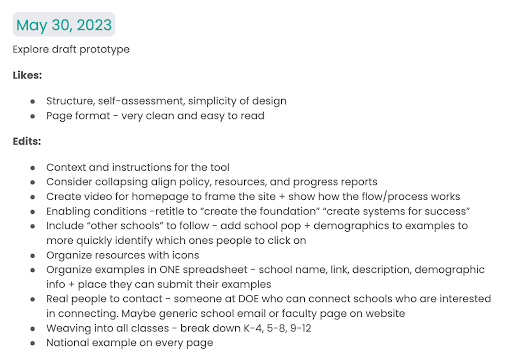
It was through this feedback team that a challenge surfaced: innovators were hesitant to share their artifacts for fear that they weren’t yet perfect. LCC and INDoE prioritized highlighting early bright spots that focused on progress, not perfection as a way to scale change. They modified the language used to invite grant winners to share stories and artifacts to showcase their approach, which led to increased participation and a broader representation of schools and contexts in the final Playbook.
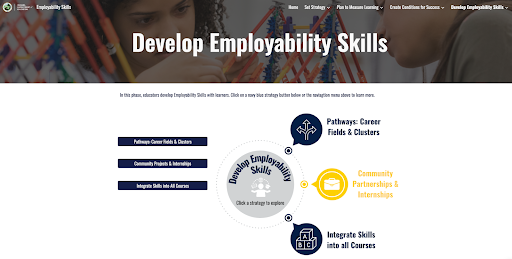
As a result of this partnership with LCC, the INDoE has a living Employability Skills Playbook, meaning that it’s not a PDF or a binder that will gather dust on a shelf. Instead, innovators are encouraged to continue to share artifacts to illuminate the newest, most effective approaches in Indiana and beyond. State, district, and school leaders will have access to the latest strategies, tools, examples, and resources to drive their own implementation of Employability Skills.
EXPLORE RELATED RESOURCES
- Indiana Department of Education Employability Skills Playbook
- Indiana Case Study
- Blog post Indiana’s Bold Step: Empowering Students with Employability Skills
